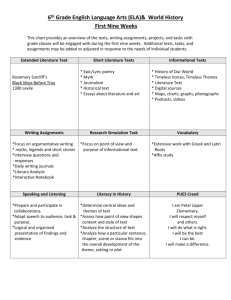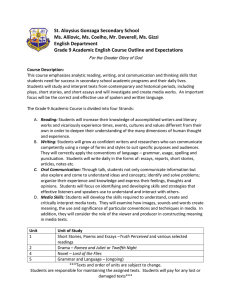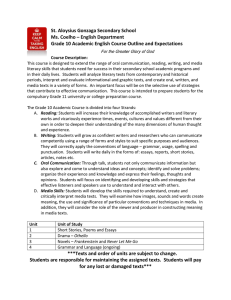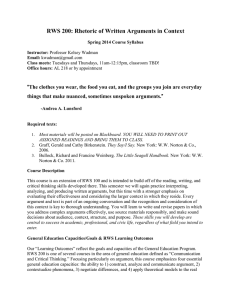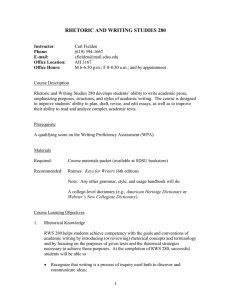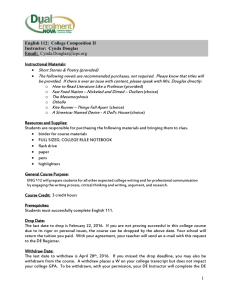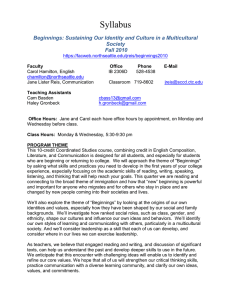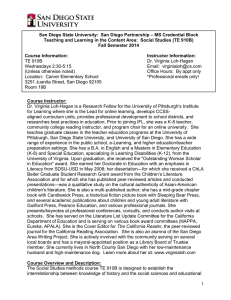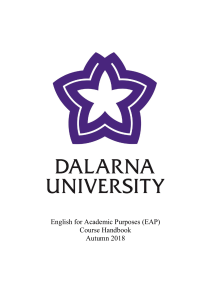ENGL 320 RESPONDING TO WRITING (FALL 2009) Dr. James Zukowski
advertisement
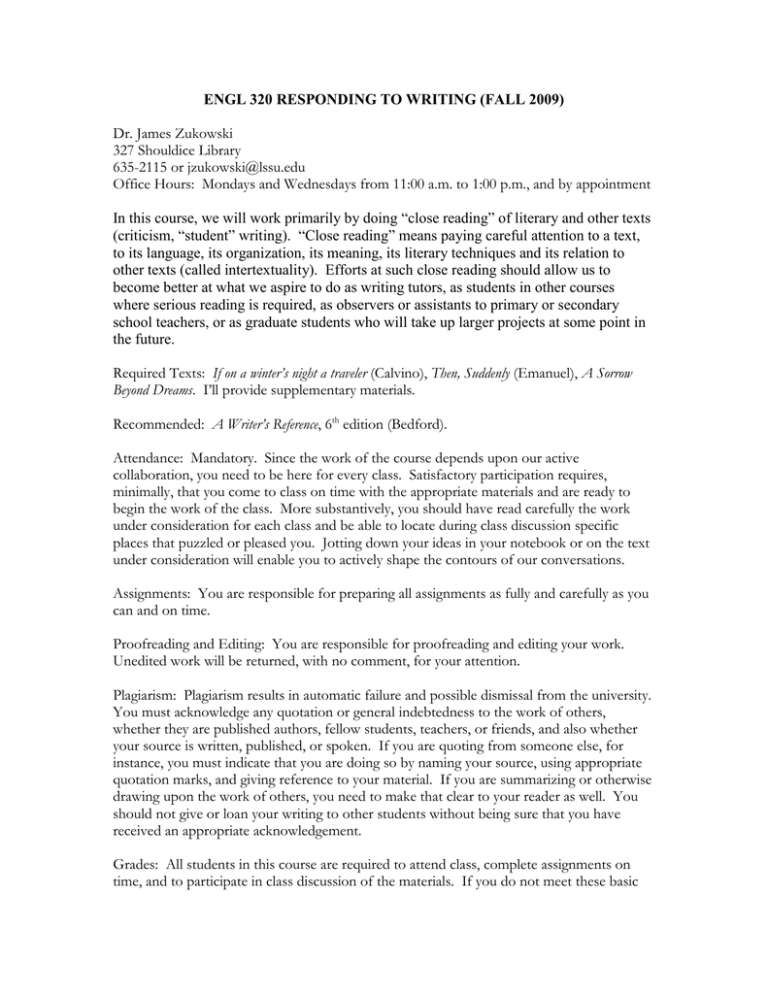
ENGL 320 RESPONDING TO WRITING (FALL 2009) Dr. James Zukowski 327 Shouldice Library 635-2115 or jzukowski@lssu.edu Office Hours: Mondays and Wednesdays from 11:00 a.m. to 1:00 p.m., and by appointment In this course, we will work primarily by doing “close reading” of literary and other texts (criticism, “student” writing). “Close reading” means paying careful attention to a text, to its language, its organization, its meaning, its literary techniques and its relation to other texts (called intertextuality). Efforts at such close reading should allow us to become better at what we aspire to do as writing tutors, as students in other courses where serious reading is required, as observers or assistants to primary or secondary school teachers, or as graduate students who will take up larger projects at some point in the future. Required Texts: If on a winter’s night a traveler (Calvino), Then, Suddenly (Emanuel), A Sorrow Beyond Dreams. I’ll provide supplementary materials. Recommended: A Writer’s Reference, 6th edition (Bedford). Attendance: Mandatory. Since the work of the course depends upon our active collaboration, you need to be here for every class. Satisfactory participation requires, minimally, that you come to class on time with the appropriate materials and are ready to begin the work of the class. More substantively, you should have read carefully the work under consideration for each class and be able to locate during class discussion specific places that puzzled or pleased you. Jotting down your ideas in your notebook or on the text under consideration will enable you to actively shape the contours of our conversations. Assignments: You are responsible for preparing all assignments as fully and carefully as you can and on time. Proofreading and Editing: You are responsible for proofreading and editing your work. Unedited work will be returned, with no comment, for your attention. Plagiarism: Plagiarism results in automatic failure and possible dismissal from the university. You must acknowledge any quotation or general indebtedness to the work of others, whether they are published authors, fellow students, teachers, or friends, and also whether your source is written, published, or spoken. If you are quoting from someone else, for instance, you must indicate that you are doing so by naming your source, using appropriate quotation marks, and giving reference to your material. If you are summarizing or otherwise drawing upon the work of others, you need to make that clear to your reader as well. You should not give or loan your writing to other students without being sure that you have received an appropriate acknowledgement. Grades: All students in this course are required to attend class, complete assignments on time, and to participate in class discussion of the materials. If you do not meet these basic requirements, you may be advised to withdraw from the course. 70% of your grade will be based upon your work as a writer, and 30% will be determined by your class participation, on how and what you contribute as a reader and responder. Schedule of Assignments: As we’ll want to have some flexibility in how quickly or slowly we move, I’ll provide you with a weekly schedule rather than one that covers the entire semester.


